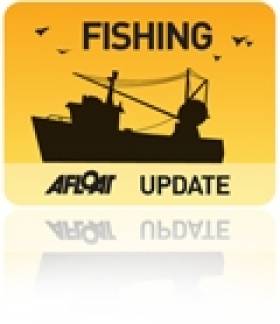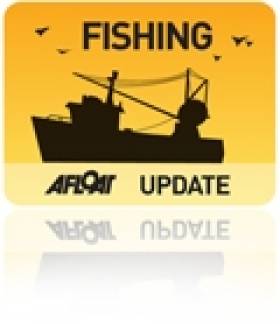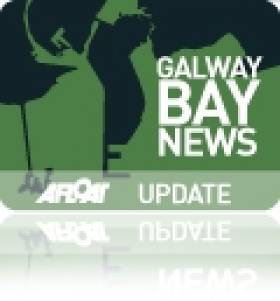Displaying items by tag: Organic
Irish Seafood Takes Pride Of Place At World Organic Trade Fair
#Seafood - Three seafood companies were among the eight organic food businesses exhibiting at this year's Biofach event in Germany.
Kush Seafarms in Co Kerry, Irish Seaspray in Co Galway and the Irish Organic Salmon Company in Co Donegal all return after last year's exhibiting at the World Organic Trade Fair in Nuremberg.
And they were joined at the opening of their stand by Minister of State Tom Hayes, who reiterated the opportunities that exists for the organic food market at home and abroad.
“Participation in Biofach allows our organic producers and processors to showcase Irish organic produce on a worldwide stage," he said. “It also provides ample opportunities to network with purchasing decision makers, both from Europe and further afield.”
Minister Hayes also paid tribute to Bord Bia “for the professional way that they have organised the Irish food industry’s participation at this very important event.”
He concluded: “I wish all participants here today every success over the coming days and I hope that you develop the partnerships and contacts that will help your business continue to grow into the future.”
Eight innovative Irish seafood and food companies are participating at the event, which runs till Saturday 14 February.
Last year, Biofach attracted over 2,000 exhibitors and in excess of 42,000 trade visitors attended the event.
Minister Praises Opportunities For Irish Seafood At Organic Trade Fair
#Seafood - Speaking at the opening of Ireland’s organic food stand at BioFach, the World Organic Trade Fair in Nuremburg, Germany this week Minister of State Tom Hayes of the Department of Agriculture, Food and the Marine highlighted the opportunities that exist for Irish organic produce both at home and abroad.
“There are undoubtedly opportunities for indigenous Irish companies to make inroads into these export markets, and the Irish participation at Biofach is an important step in that direction,” said Minister Hayes.
Eight innovative Irish food companies - five of which are in the seafood sector - are participating at the event, which runs till Saturday 15 February.
Last year, BioFach attracted close to 2,500 exhibitors and some 41,800 trade visitors from 136 countries.
The minister also paid tribute to Bord Bia “who have once again done a wonderful job in organising the Irish food industry’s participation at this important event.
"I am convinced that with all the stakeholders of the industry working together, we can realise the potential that clearly exists for the Irish organic sector”.
Currently exhibiting at the Irish stand are Murphy's Irish Seafood, Kush Seafarms, Irish Seaspray, Emerald Mussels and the Irish Organic Salmon Company, along with beef and lamp specialists The Good Herdsman, Just Food and The Little Milk Company.
Protest in Galway Over Fish Farm Plans This Weekend
#Fishfarm - Galway Bay FM reports that a major protest is set to take place in Galway this weekend against the proposed deep sea fish farm off the Aran Islands.
Galway Bay Against Salmon Cages is organising the demonstration from Eyre Square on Saturday 2 March at noon in opposition to the 500-hectare organic salmon farm proposed by Bord Iascaigh Mhara (BIM).
The facility, to be located off Inis Oírr in Galway Bay, would be the largest of its kind in Europe and would double the State's production rate of organic salmon, cited by BIM as Ireland's leading organic food export.
However, the scheme has been facing strong opposition from fisheries groups and local anglers citing the potential environmental impact on wild salmon numbers and the threat to tourism in the area.
Inland Fisheries Ireland is among those bodies that have expressed concern over the fish farm plans, citing research on the effect of sea lice emanating from aquaculture facilities on the mortality rate of wild Atlantic salmon.
BIM responded to news of the protest by stating such action may be unnecessary due to the appeal mechanism available in the State's decision process.


























































